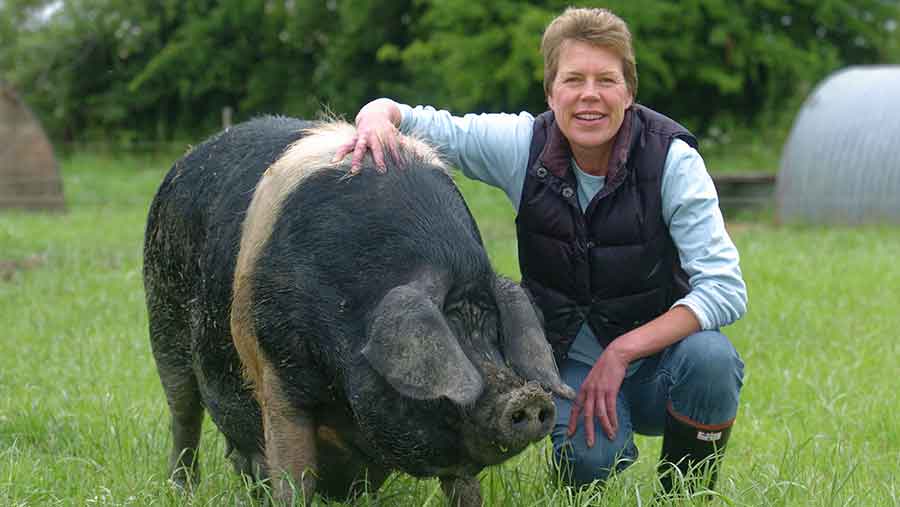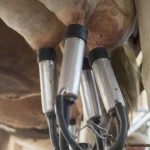Farming network shares new thinking and techniques

Conventional farmers have much to learn from organic farmers, both in terms of improving their sustainability and their profitability, according to Soil Association chief executive Helen Browning.
“Organic farming has a lot to offer because we have been having to do without agro-chemicals for the last 60 or 70 years,” she told this week’s South of England Farming Conference at Ardingly, West Sussex. “We have learned a lot of techniques that can help as the chemistry stops working.”
Examples included addressing the problem of blackgrass and leatherjackets without chemicals, and how to manage no-till systems without glyphosate.
See also: Organic farming ‘boosts biodiversity and bees’
Ms Browning added that most research in agriculture was either “near market” – financed by people with products to sell – or “pure research”, funded by research councils or government.
“There is very little money going into applied research, and virtually none of it is farmer-led,” she said.
Practical approach
To help address this, the Innovative Farmers network had been launched last year under the Duchy Future Farming programme.
“The idea is for groups of farmers to get together to solve the challenges they want to solve, usually using things that they’ve got around them in the first place.”
Ms Browning explained that over 750 farmers so far had taken part in so-called “field labs” and open days, with some 35 topics being covered.
Small grants were available and the paperwork was kept really simple, so farmers could get things off the ground quickly.
“It’s very much for non-organic farmers as well as organic farmers,” she said. “Some of the new stuff coming through is quite whacky, but some of the most brilliant scientific breakthroughs have come from some quite whacky places in the first instance.”
New thinking in practice
 Compost tea. This has been trialled on organic and non-organic farms for the past two years. In the first year it delivered 10% to 50% higher yields.
Compost tea. This has been trialled on organic and non-organic farms for the past two years. In the first year it delivered 10% to 50% higher yields.
It has also produced 60% more active fungi in soil samples from treated areas, and higher bushel weights – enough to bump the milling oats grown up into a higher premium market.
Sprouted seeds. All the rage in health food shops, Duchy College in Cornwall has carried out trials mixing them 50:50 with laying hen rations.
The results showed a 25% reduction in the amount of feed consumed, with no drop in egg weight or egg numbers.
 Mastitis. One field lab had achieved a 50% reduction in antibiotics use in dairy cows by using peppermint oil.
Mastitis. One field lab had achieved a 50% reduction in antibiotics use in dairy cows by using peppermint oil.
Another trial by the South Dairy Mastitis group is identifying whether the bacteria are gram positive or gram negative, and only treating the gram positive ones.
On a small sample size this has delivered a 25% reduction in the antibiotics bill. Milk from untreated animals is also able to go into the bulk tank after five days rather than 14.
Hoeing had decreased creeping thistle by 70% on one farm, but deep cultivation in the autumn was the most successful.
 Creeping thistle. A range of techniques have been trialled, including an electric weeder, a biodynamic weed pepper, using buckwheat as a green manure and sub-soiling at eight to 10in.
Creeping thistle. A range of techniques have been trialled, including an electric weeder, a biodynamic weed pepper, using buckwheat as a green manure and sub-soiling at eight to 10in.
Others. A field lab experiment grazing sheep with winter wheat in the spring has been successful at reducing blackgrass, as has making compost from woodchip to replace a growing substrate containing peat and using sea water minerals on arable crops, to stimulate nutrient uptake.
